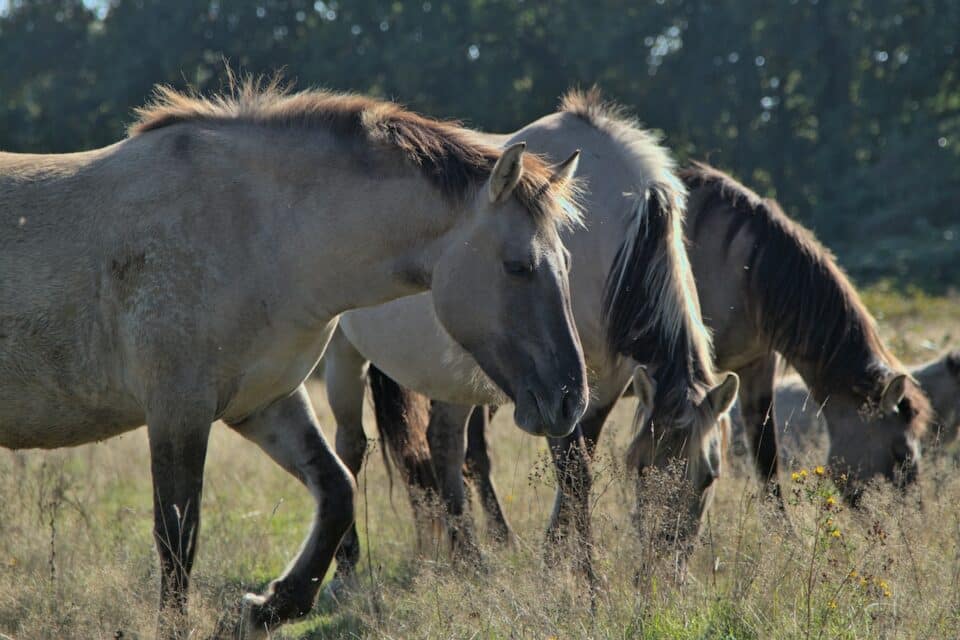Common Horse Skin Conditions: Identification and Treatment
Horse skin conditions are a prevalent and often challenging aspect of equine care. From simple irritations to more severe conditions such as infections or parasitic infestations, skin disorders can cause a variety of symptoms, including itching, pain, hair loss, and inflammation. They affect the horse’s appearance and can significantly impact their overall health and comfort. Proper identification and timely treatment of these conditions are essential to ensure the well-being of these magnificent animals.
The range of skin conditions in horses is vast, with causes stemming from environmental factors, allergens, pathogens, or internal health issues. It is crucial for horse owners, riders, and caretakers to be educated about the common signs of skin disorders and the treatment options available. Keep reading to learn more about identifying and treating the most frequent skin conditions that can affect your equine companion.
1. Aural Plaques (Ear Plaques)
Aural plaques, characterized by the presence of white or gray crusty patches inside the ears, can be both uncomfortable and concerning for horse owners. These patches are attributed to papillomavirus, often transmitted by biting flies, which triggers the skin’s reaction. To address this condition, applying a soothing Hot Spot Spray can help alleviate irritation and inflammation, promoting comfort. Additionally, regular ear cleaning and the use of fly repellents are effective preventive measures against the recurrence of aural plaques.
2. Dandruff
The presence of white, flaky skin along the mane, tail, and coat is indicative of dandruff, a common skin issue. Dandruff can stem from dry skin, allergies, or insufficient grooming routines. Nourishing the skin with a Therapeutic Shampoo can provide much-needed moisture and relief from discomfort. Moreover, regular grooming sessions combined with a well-balanced nutritional regimen contribute to maintaining a healthy scalp and coat.
Transform your pet’s coat with our Cherry Blossom and Green Tea Leave In Conditioning Spray. Elevate their look with a clean, shiny, and irresistibly soft coat.
3. Eosinophilic Granuloma
Raised and firm nodules, typically observed on the back, are indicative of eosinophilic granuloma, often associated with allergic reactions. These nodules often result from hypersensitivity to insect bites or other allergens. To manage this condition, veterinarians often prescribe steroids or antihistamines to alleviate the immune response. Timely treatment not only relieves discomfort but also prevents secondary infections that can complicate the situation.

4. Equine Mange
Intense itching, coupled with redness and scaly skin, can signal an infestation of mites, leading to equine mange. Mange is commonly caused by mites that invade the skin and hair follicles. Soothing the skin with an Allergy Shampoo helps to cleanse and comfort, contributing to the overall well-being of the horse. Regular grooming practices and maintaining a clean living environment minimize the risk of mite infestations.
5. Equine Ringworm
Circular, hairless patches of crusty skin are indicative of equine ringworm, a fungal infection. Fungi responsible for ringworm thrive in damp, humid environments. Utilizing a Therapeutic Shampoo for Yeast Overgrowth can help manage the symptoms and address the fungal infection. Regularly cleaning tack and grooming tools, along with maintaining proper stable hygiene, reduces the chances of ringworm outbreaks.
6. Lice Infestation
Scratching, hair loss, and the presence of visible lice or nits in the coat are clear indications of a lice infestation. Infestations occur due to close contact with other infected horses or exposure to contaminated equipment. Using a Hot Spot Spray can help soothe the skin and alleviate discomfort associated with lice infestations. Regular grooming and thorough inspection help in early detection and prevention of lice outbreaks.
7. Rain Scald or Rain Rot
The presence of scabby and crusty lesions, often located along the back, is characteristic of rain scald or rain rot. Prolonged exposure to wet conditions facilitates bacterial growth, leading to this condition. Incorporating the use of an Allergy Shampoo can gently cleanse and soothe the affected areas, promoting healing. Ensuring the horse remains dry and maintaining regular grooming practices play a pivotal role in preventing the recurrence of rain scald.
8. Warts
Small, round skin growths, frequently seen around the muzzle and eyes, indicate the presence of warts. Warts are caused by papillomavirus infections. For managing warts, applying Dermaskin Ointment can help reduce their appearance and provide relief. Minimizing contact with infected horses and ensuring proper equipment sanitation are essential measures to prevent the spread of warts.
Experience relief for your horse’s skin woes with our DermaSkin Ointment. Say goodbye to irritations, rashes, and infections, and say hello to a happier, healthier equine companion.
FAQs
- What skin conditions can horses get? Horses can develop various conditions including ringworm, mange, dandruff, warts, aural plaques, rain rot, and lice infestations.
- What are the symptoms of dermatitis in horses? Symptoms include itching, inflammation, hair loss, and crusty or oozing sores.
- What are the scabby spots on horses? These might be signs of rain scald, lice infestation, or a fungal/bacterial infection.
- What are fungus horse skin conditions? Ringworm is a common fungal skin condition in horses.
- How do you soothe an itchy horse? Therapeutic shampoos, topical ointments, and prescribed medications can help.
- What horse herbs help with itching? Chamomile, calendula, and aloe vera are known for their soothing properties.

Nurturing Equine Skin Health
Horse skin conditions, while common, require very vigilant attention. Early identification and prompt, effective treatment are paramount for your horse’s health and comfort. For a comprehensive approach to equine skin care, consider products like the Allergy Shampoo and Dermaskin Ointment, specifically formulated to soothe and promote skin health. Consult your veterinarian for guidance and take proactive steps today for your horse’s well-being.
Related Link: Four common Problems Faced by Active Horses
~Veterinarian Recommended